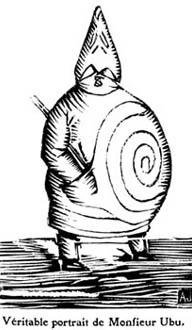User Login |
B. Dolan (Sophie)
<!--StartFragment-->
I first noticed B. Dolan’s fascinating linguistics and towering presence at the Jeffery McDaniel and Sage Francis Stage Meets Page performance, at the Bowery Poetry Club a couple weeks back. Don’t quote me, but I would say he was a solid 6’2 280 lbs, his size reflecting his intensity. When he took the stage he commanded it, preparing the audience with an energy that tore my attention and arrested my concentration. After the first few words were spoken, bellowing to the backs of the Bowery, I was sold. So after the show I told him I was going to write a review and he handed me a free CD; funny how that works. B Dolan’s “The Failure” is a compilation of many different projects he has been working on. His poetry is accentuated by everything from a Steven Hawkins like recorded voice, to beautiful piano and base pieces, to low formidable growling, to fist pumping hip-hop beats. His highly political connotation came through crystal clear in the first piece “Still Electric” where he used a strange rewind, record scratching voice manipulation sound to accentuate his words.
“I’ve been ri-ri-ripp-ripping cables out of me, making room for soft spots.”
I felt as though this method was reflective of personal conflict in regards to media and politics. Reflecting the idea that one might be torn by the pull to live happily ignorant, when being furiously informed is a lot more difficult. The record scratch of his vocal cords seemed to commit, then retract the same way some do their dedication to education and change. These ideas perfectly set the stage for the next piece on the CD, which addressed a collective of artists neglecting to utilize their ability to be socially provocative. Dolan attacks hip-hop MCs for continuing social oppression and not using their leverage as artists to perpetuate change. In a song titled “Heart Failure” B. Dolan duets with Sage Francis to insult the integrity of mainstream rap/hip-hop artists. They call them “minute men of hip-hop” and eternize the concept of what artists should be doing with their work: provoking social change. “Your language is a streams of hateful lazy clichés, written gateways to racism,” is just one line that blatantly addresses the actions of faux revolutionary rappers. Through fusing hip-hop and poetry, B. Dolan is attempting to be a representative of revolutionary hip-hop and hip-hop culture and lead the youth astray from glorifying political ignorance, gluttony, and social complacency. In this task, his album succeeds. A dramatic change came in the piece titled “Kate”, where B. Dolan went from addressing social issues to telling a personal anecdote. He outlines the story of a drug addicted 17-year-old mother, and how he loved her. He talks about how she wrote when he was around and it was only about him, but he didn’t want it to be that way. This poem, with a barely detectable classical melody in the background, brings you closer to B. Dolan as a person as opposed to an activist. He outlines the grotesque events Kate has endured and how he still loved her in spite of them, and as the melody grew into a wailing he belted the story of her rape, and begged God for her rapists’ damnation. He twisters into a lyrical frenzy and when the music dramatically stops, he concludes with an apology for not being better for her, and states that he will love her for the rest of his life. B. Dolan immerses himself in various different topics, but spreads one solid message. He focuses on education and the freedom from being manipulated by the media and other outside sources. But most of all, he speaks open minds, mouths, and revolution. I would recommend this album to anyone who appreciates hip-hop with a purpose, or spoken word with a beat. <!--EndFragment-->
categories [ Poetry Reviews ]
login or register to post comments | printer friendly version
|
